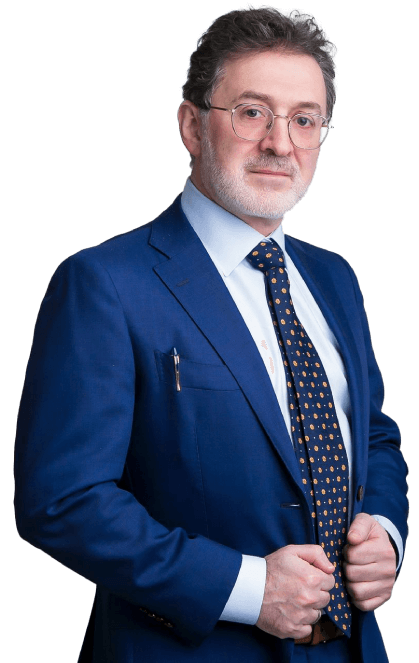Medical spas, or “med spas,” have rapidly grown in popularity across New York State, driven by increased consumer demand for non-invasive aesthetic treatments. Combining traditional spa comforts with medical-grade cosmetic procedures, med spas offer services like Botox injections, dermal fillers, laser hair removal, chemical peels, and other skin rejuvenation treatments. Their rising appeal stems from the convenience, relatively quick procedures, and often immediate results. However, alongside their growth, these establishments are increasingly drawing scrutiny from regulatory agencies, particularly New York State’s Office of Professional Discipline (OPD).
The OPD has intensified its focus on med spas due to mounting concerns about compliance violations, especially regarding the unauthorized practice of medicine by nurses performing procedures legally reserved for licensed Physicians Assistants (PAs) or Medical Doctors (MDs). As nurses frequently administer procedures such as Botox or fillers without proper supervision, significant patient safety risks emerge, including severe allergic reactions, infections, nerve damage, and permanent scarring. Consequently, regulatory authorities view such unsupervised practices as severe violations, prompting rigorous enforcement actions.
Moreover, the confusion about the proper scope of practice often stems from vague business models and aggressive marketing tactics used by med spas, which can mislead patients into believing nurses or aestheticians alone are qualified to perform certain medical-grade procedures. This misunderstanding poses substantial legal and financial liabilities, not only for the medical professionals involved but also for business owners operating these facilities. Consequently, increased regulatory scrutiny is aimed at curtailing practices that misrepresent or disregard established medical standards, ensuring patient safety remains paramount.
Scope of Practice Defined
The concept of “scope of practice” in New York State is precisely defined to regulate medical professionals’ roles and responsibilities clearly. These regulations delineate specific procedures each type of licensed professional—such as MDs, PAs, RNs, and aestheticians—is permitted to perform, ensuring treatments are conducted safely and effectively. In particular, invasive aesthetic procedures, injections of dermal fillers, Botox, platelet-rich plasma (PRP) therapies, and advanced laser procedures are explicitly reserved for licensed physicians or physician assistants. These professionals have extensive medical training and expertise in handling potential complications or adverse reactions effectively.
Registered nurses (RNs) and licensed practical nurses (LPNs), although critical components of med spa teams, possess more limited procedural authority. They may administer certain medical treatments only under the direct and documented supervision of a licensed physician or PA. The supervising professional must explicitly authorize treatments, ensure proper patient evaluation, and be immediately accessible to manage potential complications. Unfortunately, regulatory authorities frequently find med spas ignoring these essential supervisory requirements, leading to unsafe practices and patient harm.
Violations of scope-of-practice regulations by nurses commonly involve independently administering Botox or fillers without documented physician oversight. Such illegal practice significantly increases the likelihood of adverse outcomes due to insufficient evaluation, inappropriate dosing, or lack of emergency response capabilities. Therefore, these regulations exist to protect patients, ensure high standards of medical care, and clearly define professional accountability.
Non-compliance exposes both individual practitioners and businesses to significant consequences. New York State has implemented stringent measures against violations, reinforcing the importance of strict adherence to scope-of-practice laws. Med spa operators must thoroughly understand these legal boundaries and consistently enforce them, as even minor oversights can trigger severe regulatory responses and jeopardize patient safety and business viability.
Recent OPD Actions and Enforcement Examples
The Office of Professional Discipline (OPD) has recently intensified its enforcement actions against med spas violating scope-of-practice regulations. Recent prominent cases illustrate the seriousness with which OPD views these infractions.
A high-profile Manhattan med spa recently faced regulatory action after an OPD investigation uncovered that nurses had been independently performing Botox injections and administering dermal fillers without the required physician oversight. Complaints filed by patients citing adverse reactions, including severe swelling, bruising, and nerve damage, triggered the investigation. The subsequent inspection revealed insufficient documentation of supervision, absence of emergency medical protocols, and inadequate patient assessments prior to procedures. The business received fines totaling around $75,000, and involved nurses faced suspension or revocation of their licenses. The incident severely damaged the med spa’s reputation, resulting in significant customer loss and negative media coverage.
In another case, a Westchester County med spa was permanently shut down following an OPD investigation that revealed nurses conducting advanced laser treatments without appropriate supervision. This violation was particularly concerning because advanced laser procedures can cause serious injury if improperly executed, including severe burns, scarring, and pigmentary disorders. The investigation further discovered systematic non-compliance with state regulations, including incomplete patient consent forms and lack of physician oversight records. The spa faced financial penalties exceeding $50,000, revocation of its operating license, and disciplinary actions against nursing staff involved. This case underscored OPD’s commitment to aggressively pursuing severe violations to protect public health and uphold medical standards.
These cases are part of a broader trend: OPD increasingly conducts proactive and surprise inspections across the state, significantly intensifying scrutiny of the industry. Med spa operators now face heightened regulatory risks, emphasizing the critical need for stringent compliance protocols and proactive legal guidance to navigate this rigorous regulatory landscape successfully.
Norman Spencer Law Group, with extensive expertise in medical regulatory compliance, frequently represents med spas and healthcare professionals facing OPD investigations and disciplinary actions. Their proactive compliance strategies and robust defense measures help med spas navigate complex regulatory issues, minimize legal exposure, and maintain operational integrity amidst increasing regulatory scrutiny.
